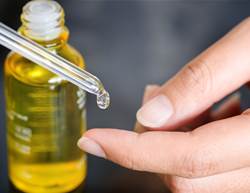Waking up with a puffy face can throw off your entire morning. You roll out of bed, shuffle to the bathroom, glance in the mirror—and there it is. Swelling around your eyes, cheeks and jaw. Unless you had a wrestling match in your sleep, what’s behind this sudden puffiness?
Here, doctors break down the common causes of morning facial swelling, how to treat it and what you can do to prevent it from happening in the first place
Puffy face symptoms
Facial swelling occurs when fluid builds up in the tissues of the face. It’s often most noticeable around the eyes, cheeks and jawline, says dermatologist Dr Kristina Collins. Other symptoms may include:
- A tight, bloated feeling in the face
- Swelling in the lower face and neck
- Facial heaviness
- Facial pain
Puffy face causes
Morning facial puffiness can be triggered by a range of medical and lifestyle factors. Below, Dr Collins, dermatologist Dr Saami Khalifian and family and sports medicine physician Dr Ben Ifedi explain the most common reasons behind that unexpected swelling.
Medical causes
Facial swelling can sometimes be linked to underlying health conditions, including:
- Allergies – Dust mites, pet dander and other allergens can cause inflammation.
- Hormonal fluctuations – Menstruation, pregnancy, menopause and thyroid dysfunction can contribute to puffiness.
- Sinusitis – Chronic or acute sinus infections may lead to swelling around the eyes and cheeks.
- Kidney or liver conditions – These can cause fluid retention, leading to facial puffiness.
- Sleep apnoea or breathing issues – Disrupted sleep can result in under-eye swelling.
- Autoimmune conditions – Some inflammatory conditions can cause fluid retention.
- Facial trauma – A broken nose or fractured jaw can lead to swelling.
- Medication side effects – Certain medications, such as steroids, can cause facial bloating.
- Cushing’s syndrome – Excess cortisol in the body can sometimes lead to a swollen, round face (commonly called ‘cortisol face’).
- Tooth abscess – Dental infections can contribute to swelling in the lower face.
Lifestyle causes
In some cases, habits and daily choices can play a role in facial puffiness. These include:
- Fluid imbalance – Dehydration or overhydration can both contribute to fluid retention, says Dr Collins.
- Poor sleep habits – Insufficient or poor-quality sleep can cause puffiness.
- High salt intake – Excess sodium in the diet leads to water retention.
- Alcohol consumption – Drinking alcohol can contribute to dehydration and swelling.
- Stress and high cortisol levels – Chronic stress may lead to fluid retention.
- Sleeping in makeup – Leaving makeup on overnight can cause skin irritation and swelling.
- Poor dental hygiene – Infections or gum inflammation can lead to facial puffiness.
- Sleeping position – Sleeping flat or on your stomach may cause fluid to pool in the face overnight.
How to reduce facial puffiness
Most cases of morning puffiness resolve by lunchtime with the right approach. Below, experts share their top de-puffing strategies.
- Apply a cool compress – A cold towel or ice roller can help reduce swelling by constricting blood vessels, says Dr Collins.
- Lymphatic drainage massage or gua sha – Gently massaging with your hands, an ice roller or a gua sha tool can drain excess fluid, says Dr Khalifian.
- Hydrate properly – “Drinking water and avoiding dehydrating beverages like caffeine and alcohol can help flush excess fluids,” says Dr Collins.
- Sleep on your back with your head elevated – “Sleeping on your side or stomach can lead to fluid pooling in the face,” says Dr Khalifian.
- Try over-the-counter medication – If allergies or inflammation are causing swelling, an antihistamine or anti-inflammatory may help, says Dr Ifedi.
- Use a Neti Pot – If sinus congestion is the culprit, nasal saline irrigation can offer relief, Dr Ifedi recommends.
- Exercise first thing – “Movement boosts circulation and prevents water from accumulating, plus sweating helps flush excess fluid,” says Dr Khalifian.
- Take a cold shower – A blast of cold water stimulates circulation, helping to reduce swelling, Dr Khalifian explains.
How to prevent waking up with a puffy face
Prevention is always easier than treating puffiness. These expert-backed tips can help keep swelling at bay:
- Stick to a consistent sleep schedule – Poor sleep can lead to inflammation and fluid retention.
- Monitor salt intake – Excess sodium contributes to water retention.
- Limit alcohol – “Alcohol is a diuretic, meaning it increases urination, leading to dehydration,” says Dr Khalifian. “In response, the body retains extra water, causing swelling. It also triggers inflammation, which can lead to redness and puffiness.”
- Stay hydrated – Drink enough water to support natural fluid balance.
- Avoid irritating skincare products – Harsh ingredients can trigger inflammation and puffiness.
- Remove makeup before bed – Leaving it on overnight can cause skin irritation and fluid retention.
- Take out contact lenses before sleeping – Wearing lenses overnight can contribute to swelling around the eyes.
- Avoid allergens – Identify and minimise exposure to triggers that cause inflammation.
- Manage stress levels – Chronic stress raises cortisol levels, leading to fluid retention.
- Practice good oral hygiene – Gum inflammation can contribute to facial swelling.
- Be mindful of carb-heavy dinners – “For every gram of carbohydrate you consume, your body retains 3 to 4 grams of water to store glycogen,” says Dr Khalifian.
- Consider a magnesium supplement – Magnesium has been found to aid in alleviating water retention symptoms. It may help reduce water retention. “I recommend magnesium citrate at 200 to 250 mg, but be mindful as it also has a laxative effect,” says Dr Khalifian.
When to see a doctor about morning face puffiness
If puffiness is persistent, worsening or doesn’t respond to home remedies, it may be time to consult a healthcare provider to rule out underlying medical issues, says Dr Collins.
Other concerning symptoms include swelling accompanied by severe facial pain, itchy skin, shortness of breath or signs of infection such as fever, skin discolouration and tenderness, adds Dr Ifedi.










